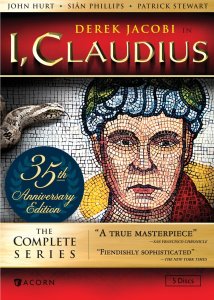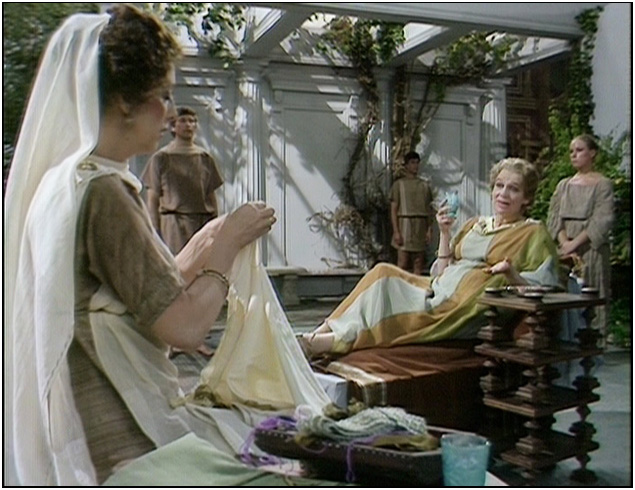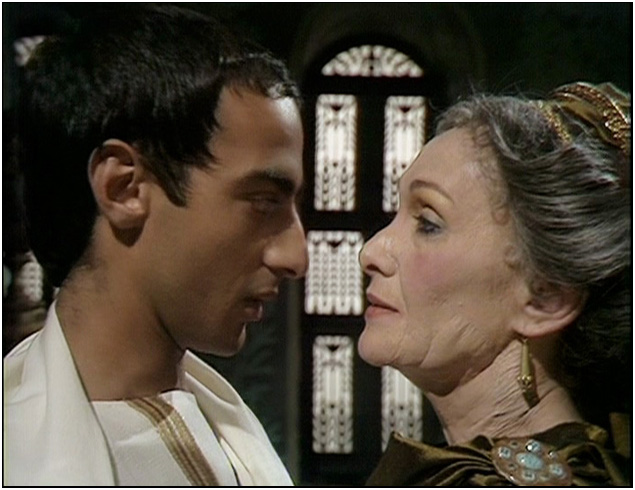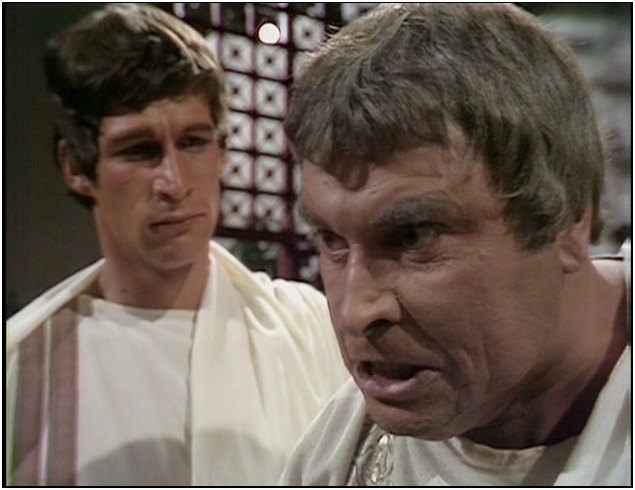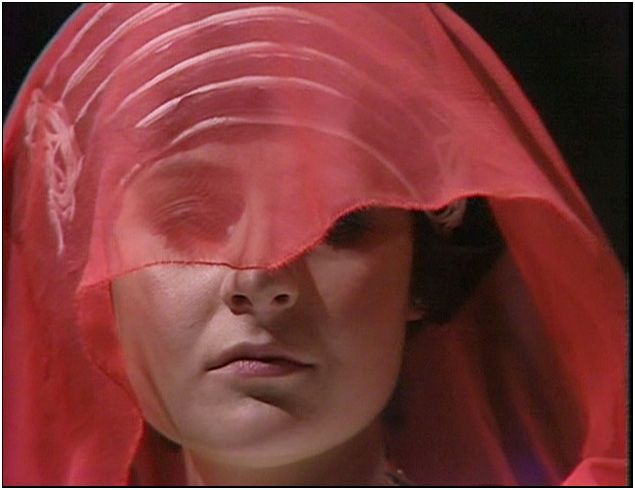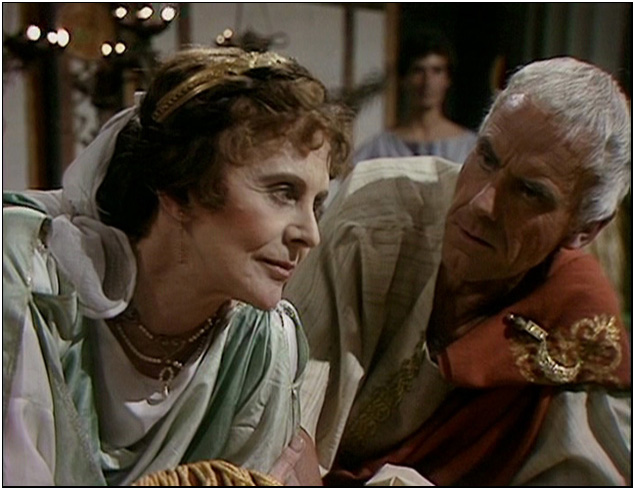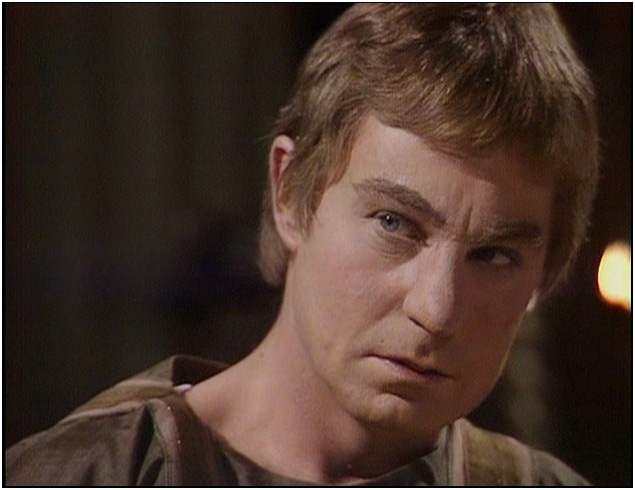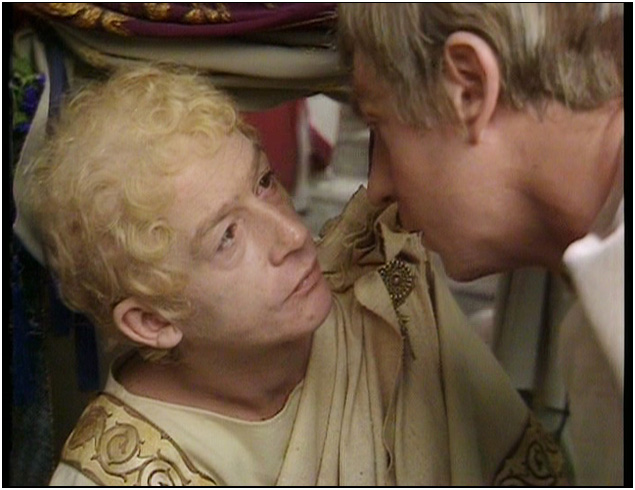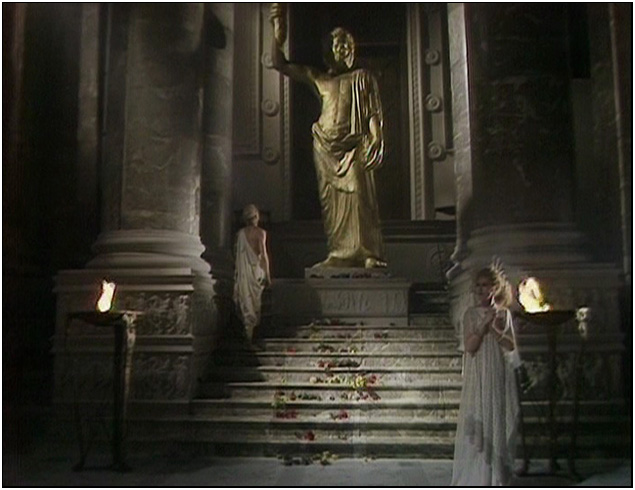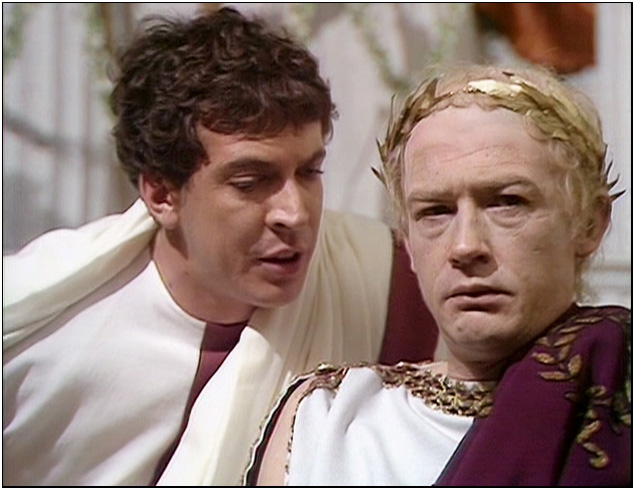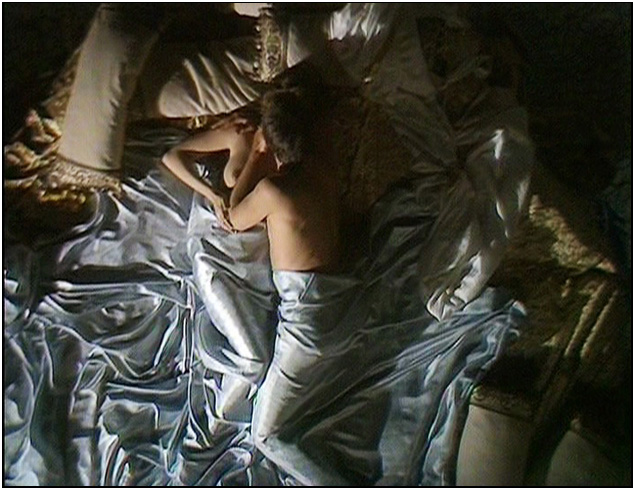![]()
![]()

![]()
![]()
|
Search DVDBeaver |
S E A R C H D V D B e a v e r |
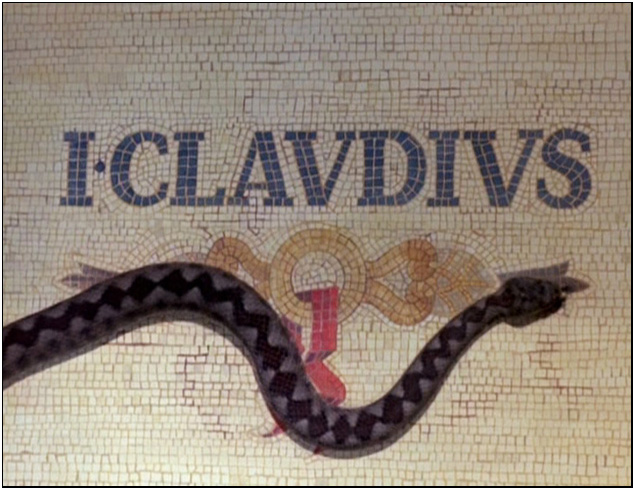
I Claudius: The Complete Series
35th Anniversary Edition
|
It will have been almost one year to the day that Acorn brought forth a re-mastered edition of the complete 5-season Upstairs Downstairs saga. And now: I, Claudius. If the image and audio quality are improved, little more would need to be said. As it happens, this new I, Claudius is better than expectations, since previous DVDs were so execrable it was hard to image source elements that could give up anything better - else why did anyone go to the trouble of producing complete video sets to start with.
If American television’s “Golden Age” of live drama was the 1950s, then England’s Golden Age might rightly have begun with filmed dramatizations of famous plays and works of fiction in the 1960s. Beginning in 1971, some of them made their way to the U.S. by way of the PBS television series “Masterpiece Theatre” which was produced by WGBH Boston for PBS and hosted by Alistair Cooke until 1992. Previously Cooke was the host of CBS’ “Omnibus” – a fascinating experiment of commercially sponsored educational television in its own right.
Among the more notable Masterpiece Theatre presentations were The Six Wives of Henry VIII and Elizabeth R (which were to become the first two of three that dealt with that most illustrious family of Tudors). In 1971, the first season of Upstairs Downstairs captured the hearts of Americans, and ushered Masterpiece Theatre’s first Golden Age that included such classics as: Poldark (1977/BBC), To Serve Them All My Days (1982/BBC), A Town Like Alice (1981/7-Network), The Jewel in the Crown (1984/ITV) and, of course, I, Claudius (1977/BBC).
Masterpiece Theatre wasn’t the only show in town for seriously well-made drama for us English speakers on the wrong side of the pond. Another PBS series: “Great Performances” would bring us Brideshead Revisited (1981), while The Prisoner (1967) would have to settle for less austere venues. Lately, however, there’s been a resurgence of good faith on Masterpiece Theatre (now called simply “Masterpiece” for some bizarre reason) with fabulously high value productions of Bleak House (2010) and Downton Abbey (2010-11).
For I, Claudius, as with many fine dramas from the UK before and since, we have the BBC to thank. Upstairs Downstairs may have felt like it was produced on little more than bare stage at times. Five years later demonstrated that the BBC could mount something with a bit more dash, to say nothing of sex and gruesome violence. While not remotely approaching what can and is being done today. I, Claudius made a great deal out of comparatively little thanks to the resourceful imagination of its creative director, Herbert Wise, and production designer Tim Harvey, who has been the go-to man for such televisions productions as The Pallisers (1974), North and South (1975), Pennies From Heaven (1978) and the 1985 Bleak House.
The BBC had an interest in I, Claudius for some time, but negotiations with the people behind Alexander Korda’s failed 1937 production had stalled for a time. The production represented quite a gamble of time and money: Sets, actors, twelve episodes (as it turned out), and a level of nudity, sex and violence not so much in fashion then – not on television, anyway. Worst of all, I, Claudius is really just a long play, with people standing, sitting and lying about talking in long takes most of the time. No chariots, no battles, no location footage at all, and no CGI. Even so you might be surprised at the number of tracking shots and odd angle photography. And, of course, there is Augustus’ incredible death scene with the camera pulling slowly into a lifeless face as Livia drones on. Let’s hear it for director Herbert Wise. Again. And again.
The cast is amazing for the sheer number of superb theatrical and television actors, many (Jacobi, Blessed, Phillips, Hurt, Baker, Stewart, Ogilvy) went on to memorable work in both stage and screen. Art Malik and John Rhys-Davies have smaller roles but they make something of them, and find later stardom in The Jewel in the Crown and Raiders of the Lost Ark.
As for Acorn Media’s new “Complete” DVD set, it lacks only Alistair Cooke’s informative introductions. Cooke equated his role with that of a headwaiter "in the sense that I'm there to explain for interested customers what's on the menu and how the dishes were composed." - HERE
– But then Cooke’s contributions are part of the Masterpiece Theatre presentations, not the BBC broadcasts. It’s too bad, really, but Acorn could hardly be faulted for their omission. |
Theatrical Release: November 6th, 1977
Reviews More Reviews DVD Reviews
DVD Review: Acorn Media - Region 1 - NTSC
| DVD Box Cover |
|
CLICK to order from: |
| Distribution | Acorn Media Home Video - Region 1 - NTSC | |
| Runtime | Total Runtime: 670 min. (approx 11 hours) | |
| Video |
Aspect ratio: 1.30:1 Resolution: 480i Codec: MPEG-2 Average Bit Rate: 6 Mbps Number of Episodes: 12 (optional 13) Typical number of chapters/episode: 5 Average Episode Runtime: (52 min.) Region Code: 1 |
|
| Audio | English (Dolby Digital 2.0) | |
| Subtitles | English (SDH), None | |
| Features |
Release Information: Edition Details: • Original versions of Episodes 1 & 2 • “I, Claudius: A Television Epic” (73:35) • The Epic That Never Was (70 min.) • 2010 Interview with Derek Jacobi (12:20) • Favorite Scenes (36:15) • 8-page booklet
|
|
| Comments: |
The Series: 10 It was at least twenty years before I finally got round to reading the two Robert Graves novels on which the television series is based: I, Claudius and Claudius the God. Graves invented the idea that Claudius faked his idiocy throughout his life in order to stay alive, and, borrowing from Tacitus and Suetonius, dredged up all manner of scandals that contemporary historians were too terrorized to put to paper – or whatever passed for paper in those days.
I thought Graves to be a better poet than novelist, and Jack Pulman the better writer. (I, Claudius was to be his last for the BBC.) So much for my opinion. Pulman’s conception was of a play in 13 parts, staged almost entirely in the studio – even the few scenes at the Coliseum. His epic tale of Hypocrisy writ as large as the Roman Empire itself begins with Claudius (Derek Jacobi) as an old man, in a kind of self-imposed exile, writing his secret memoir. He imagines the dead as ghosts who would censor his writing – and him, if they had the opportunity. His paranoia is palpable as he looks anxiously about his quarters for evidence of 1st century surveillance. Having been declared a god, as few have before or since (most notably his contemporary, Jesus Christ), a violent death is Claudius’ likely end. Or perhaps he might cheat the odds. In any case, Claudius feels some pressure to complete his secret history before he dies.
We come to understand why Claudius spent his entire life looking over his shoulder as his story unfolds: why, from a young age, he came to play the bumbling, stammering fool, exaggerating his natural disability for a desired effect; and how his grandmother Livia (Sian Phillips) patiently manipulated events behind the throne, not stopping at murder several times over. Through his eyes, we see the reigns of the first Roman emperors: Augustus (Brian Blessed), Tiberius (George Baker), Caligula (John Hurt), Claudius himself, and the nascent emperor Nero (Christopher Biggins).
The story gets under way with Augustus. He has been emperor, comfortably and effectively, for 30 odd years and, having no natural male heirs, is giving some thought to the question of succession. We meet his third wife, Livia, right off, and it isn’t long before her Machiavellian schemes become evident. Her purpose: to see the Republic remain dormant and her son Tiberius succeed. Tiberius is situated far from that possibility at the moment, nor does he share his mother’s ambition, yet he is unable to do anything contrary to her wishes.
When Claudius enters, he is in his mid-teens and already self-employed as the noble fool. An extended plotline involves Sejanus, played by a hairful of Patrick Stewart; he’s an ambitious soldier who woos the daughter of Tiberius while concentrating his political power. Still to come is the succession of the completely off-his-rocker Caligula, who would pull the arms off senators as a child would pull the wings off flies. He is played with delicious, infantile charm by John Hurt in a career-making performance. So powerful is the impression he makes, viewers walk away feeling that the play was about him, though Caligula figures in less than half the play. The problem for the writer was how to continue once Caligula is dispatched. How Jack Pulman found three additional episodes worthy of what came before is anyone’s guess.
Image: 6/4 It’s hard to believe, looking at it from hindsight, but I, Claudius, like Upstairs Downstairs before it, was shot not on film, nor even 16 mm, but on video, which meant pretty low resolution stuff back then. I guess it never occurred to anyone that we might want to watch this serial on anything larger than a 19 inch television. Such is life. Sigh... I have only the 2000 Image DVD set to compare, but my recollection is that I had the 2002 Region 2 DVD at one time, and preferred the Image. I’m not sure. In any case the Image has been, until now, the best and most complete DVD that Region 1 buyers could obtain. Indeed, on that set the first two of thirteen episodes were presented uncut.
Whatever the source used by Image, it suffered from poor contrast and weak color, nor does it appear that the image is correctly registered. I am constantly trying to focus a fuzzy image. It’s exhausting. When scaled large enough to enjoy on a sizable display, a kind of mottling is evident, more so on the darker areas of the frame. These annoyances are much attenuated on the new Acorn - I assume because the picture is more coherent to start with – that if this were all that was accomplished I would not hesitate to recommend the set.
Contrast, flat and washed out on the Image (“Image” – ha!) is now much improved, with blacks noiseless by comparison, though things do get dodgy in the darker scenes as expected. The image is also considerably sharper, even though halos and the like are about the same as on the Image. Color is denser and more accurate, with whiter whites and more natural flesh tones. You will notice this right from the opening credits.
The only liability is resolution, which is the limitation of the source elements. It is possible, even common, to obtain and transfer to DVD remarkably sharp and highly resolved images from 35 mm sources. But if you begin with resolutions less than DVD – well, you can see the problem. When viewed no greater than its native resolution, the image quality here is really quite good. The difficulty comes with expansion to larger displays, particularly front projection. There’s just too little information that can be enhanced into a large picture without its looking the worse for transit. (McCoy was right all along!) By the same token, the greater the enlargement, the better the Acorn looks over the Image. [See additional screen capture comparisons below]
Audio & Music: 7/8 Not only is the image quality much improved over the Region 1 Image DVD, but so it is with the audio. Acorn does not re-imagine mono or stereo tracks as surround options – a practice that almost invariably takes away more than it gives – and so what we have here is a clean, clear, crisp mono rendering of the dialogue, some diegetic music and on-set effects. The improvement over the dull sounding Image DVD cannot be undervalued since I, Claudius is mostly talk and in a language that, like Shakespeare, demands our full attention. Realistic chest tone and sibilants are restored, as is a realistic sense of room space. The Image had no subtitles to help us out. The Acorn hardly needs them.
Extras: 8 The Bonus Features, proper, are found on Disc Five. On Disc One we find alternate cuts of the first two episodes, described fully below under Operations & Presentation.
As near as I can make out, all but the Julian/Claudian family tree with cast photos from the 2002 Region 2 DVD release are included on Disc Five. In place of episode commentaries we find a wonderful documentary "A Television Epic" created for that Region 2 release. The director Herbert Wise starts things off, and you can feel his presence throughout the interviews of the several featured actors that talk about casting and production between slices of the series itself. One of the basic challenges was to keep visual interest alive during long takes of dialogue. Wise speaks about keeping his camera moving through the set so that we, the audience, remain invisible while this extraordinary family tears itself apart. Derek Jacobi, George Baker and Brian Blessed speak at some length about their part in this adventure and are particularly engaging and informative. This is a superb feature, a must-see.
The second bonus feature “The Epic That Never Was” was also included on the 2000 Region 1 Image set. Presented in black & white, Dirk Bogarde hosts a 1967 BBC documentary about the Alexander Korda/Josef von Sternberg 1937 movie of I, Claudius that was eventually abandoned. The piece is well over an hour and intercuts footage from the movie (yes, it survives still) with clips of Robert Graves (!) talking about his book, and actors Merle Oberon and Flora Robson. No one, it seemed, was satisfied with the production, so when Oberon was hospitalized after an auto accident, the production was shelved.
Next up is a 36-minute collection of favorite scenes of the director and featured players. Herbert Wise, Derek Jacobi, Phillips, Christopher Biggins, George Baker, John Hurt, Brian Blessed and Margaret Tyzack comment on why they chose this or that scene, which follows in full. The whole thing plays better than it sounds.
The collection of bonus features winds up with a twelve-minute excerpt from a 2010 recollective interview with Derek Jacobi by writer/producer Mark Olshaker. Production values are excellent. In widescreen and color. Outside the discs Acorn provides a flimsy 8-page booklet, whose main features are a 4-pg essay titled “Fact and Fiction” in I, Claudius” by Jennifer Coggins, and a Claudian Family Tree – minus the cast photos that were part of the Region 2 set. All in all, a nice set of bonus items.
Operations & Presentation: The case is a slightly thicker standard DVD clamshell: 5 discs with hinged pages and thin slipcase. The operant syllable here is “slip”. Once you remove the cover for the first time, toss it immediately or risk letting the case slip right through your fingers when next you slide it off your shelf, so loosely does it fit. Once we dispose of the disposable outer case, we find all five discs, some attached to two robust, yet noisy hinged pages. An 8-page booklet is also included.
Just to make certain everyone is properly confused, there is the matter of the number of episodes (is it 12 or 13?) and the length of the first two. So here is my version of events: Jack Pulman wrote thirteen episodes that Herbert Wise directed into 51-54 minutes each, including credits. At something like the last minute, the BBC decided to edit the first two episodes into a single 97:30 minute episode (with the same title as Pulman’s original first episode: “A Touch of Murder”). Lopping off the second opening credit sequence accounted for less than a minute of the difference, the rest of the cutting is arbitrary or censorship, depending on how you look at it. Curiously PBS originally aired the series in the Pulman version of thirteen parts but some DVD editions have seen fit to do it in twelve with the 1 & 2 combined as described. The 2000 Region 1 Image DVD set presents the series in the Pulman version of 13 episodes; as does the 2002 Region 2 edition. Acorn permits you to choose, by having both options. Keep your eyes open since Acorn defaults to the 12-part revised standard. You can find the Pulman “originals on the same disc under “Episodes”.
The Lord giveth and taketh away, as the adage goes: Acorn is kind enough to include subtitles – and as clearly as the dialogue is spoken, it is a welcome treat to see it in print – except they are YELLOW!!! It’s a decision that absolutely boggles the mind. Sure, a yellow font makes the subtitles more readable. But the very thing that makes them stand out makes them damn near impossible to take your eyes off so that you can watch the action as well. Perhaps your brain has a more efficient division of labor, but for me. . .
As for the menu layout, it’s sensible enough, much more so than the Image for sure. My one misgiving is not so much the relatively few chapters per episode but that there is no chapter stop immediately after the opening credits. Wilfred Josephs’ infectious title music is just that, and I would prefer an easy way out after the first episode or two. No such luck.
Recommendation: 10 There’s a good deal of good news here starting with the price. Acorn’s retail price is less than any existing new DVD on Amazon, and well worth its $59.99 retail price. Both picture and sound quality are much improved over the old Image set, and the content is as complete as is possible to get, minus the absence of the Alistair Cooke Intro’s, which were part of the Masterpiece Theatre presentations, but not the BBC. Please note that quite a number of the current Amazon users who gave this set a score of “1” have ever seen it. Their remarks, apt as they may be, refer to the 2000 or 2009 Image sets.
For those who need them, the Acorn also provides subtitles, albeit in an intrusive yellow font. The case will take up far less room on your shelf than any previous edition, making space for a proper Jewel in the Crown - being shot in competent 16 mm, in Blu-ray would be nice. Are you listening, Acorn?
Leonard Norwitz LensViews March 15th, 2012 |
Subtitle Sample
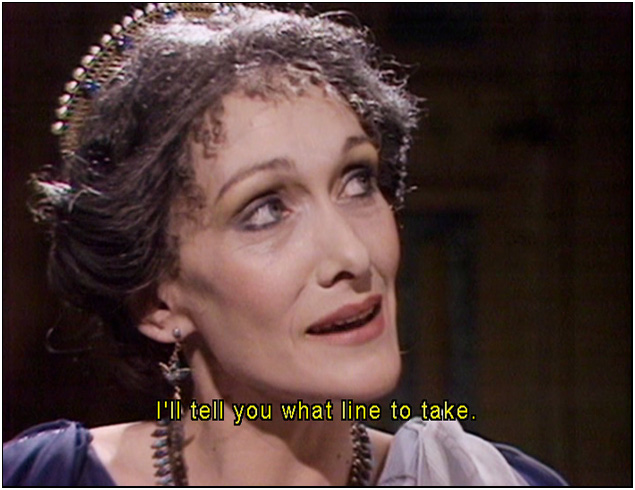 |
Screen Captures
Image Entertainment - Region 1 - NTSC TOP vs. Acorn Media - Region 1 - NTSC BOTTOM
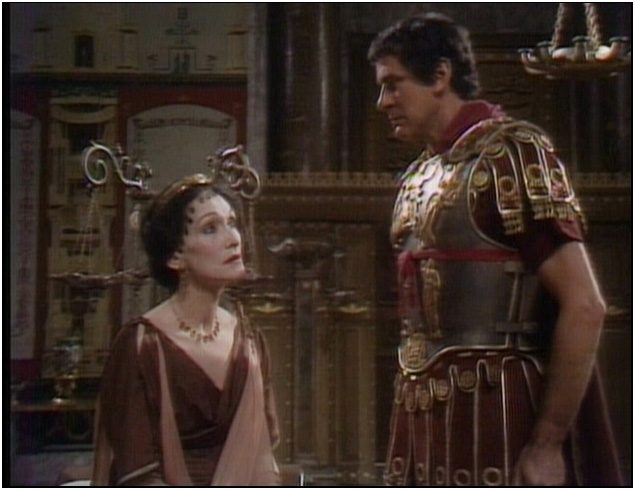 |
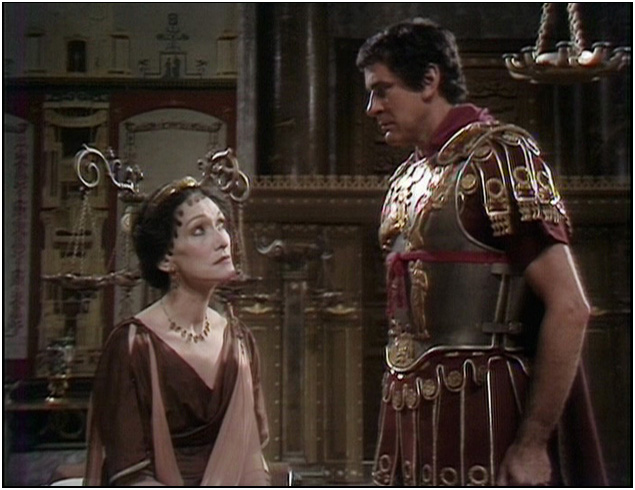 |
Image Entertainment - Region 1 - NTSC TOP vs. Acorn Media - Region 1 - NTSC BOTTOM
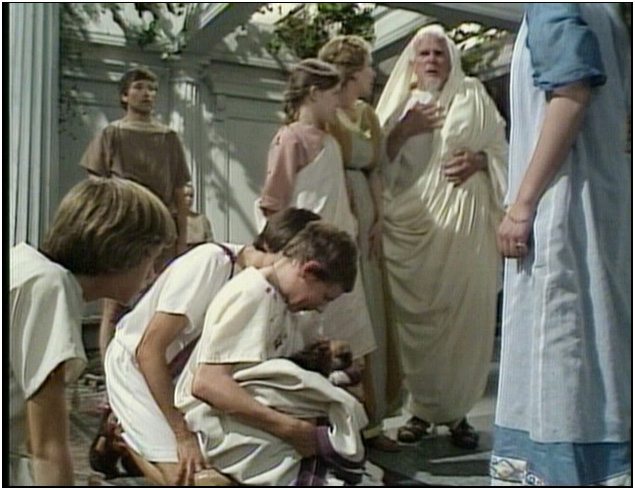 |
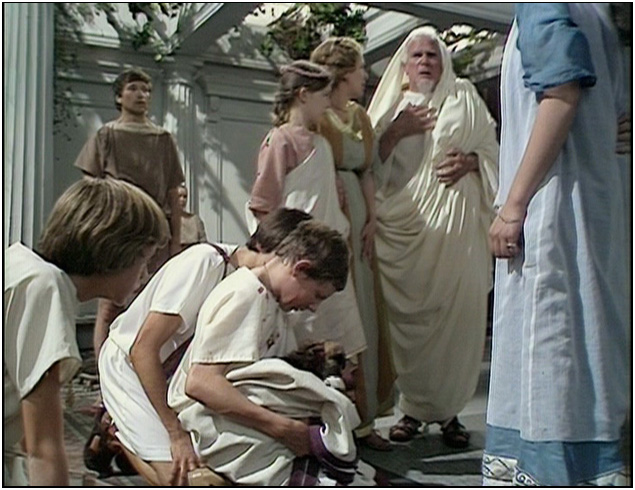 |
Image Entertainment - Region 1 - NTSC TOP vs. Acorn Media - Region 1 - NTSC BOTTOM
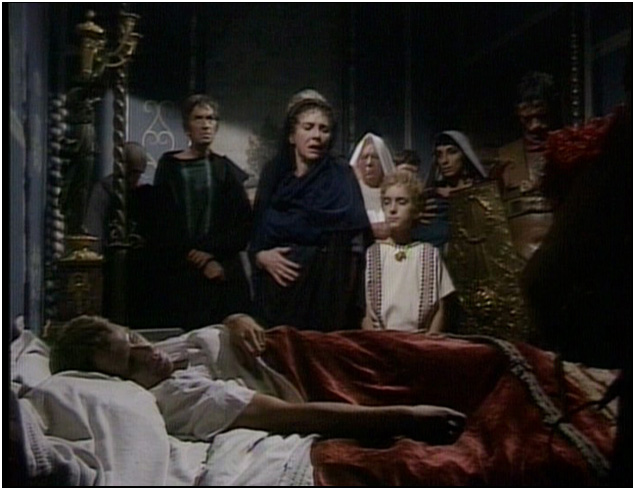 |
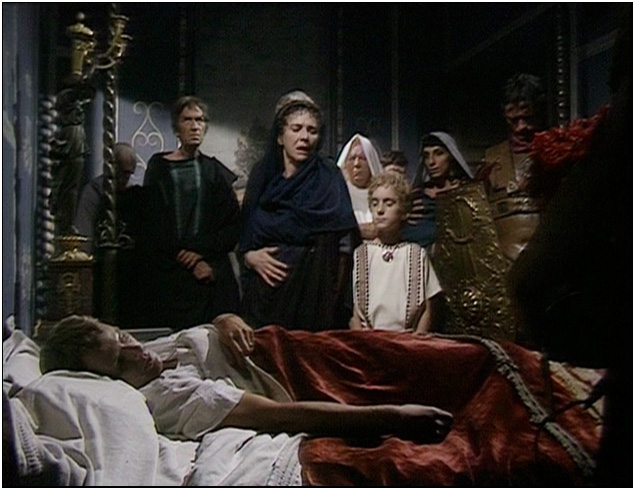 |
More Acorn Media Captures
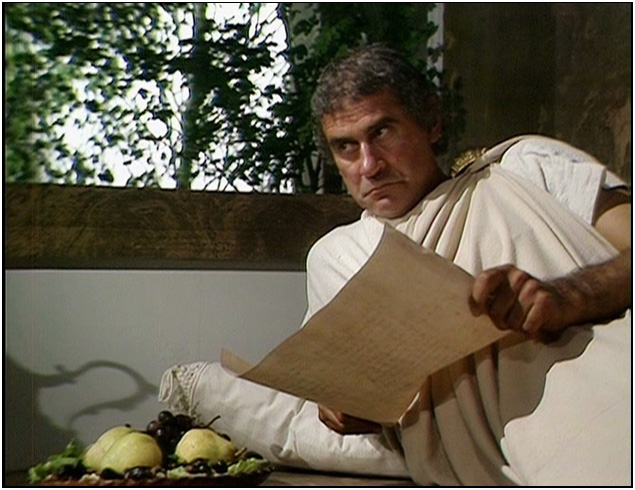 |

